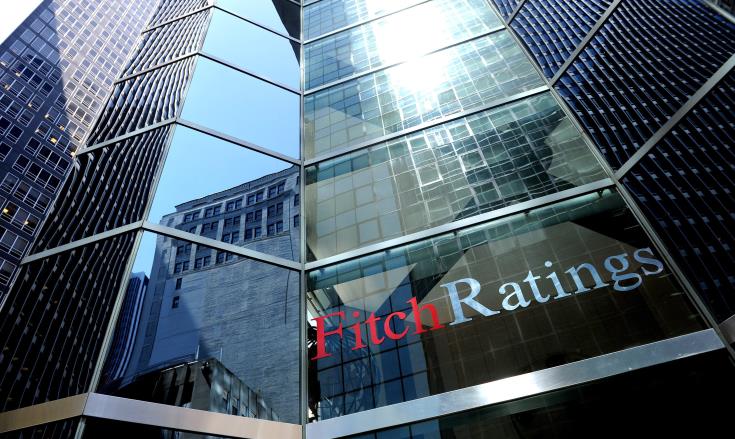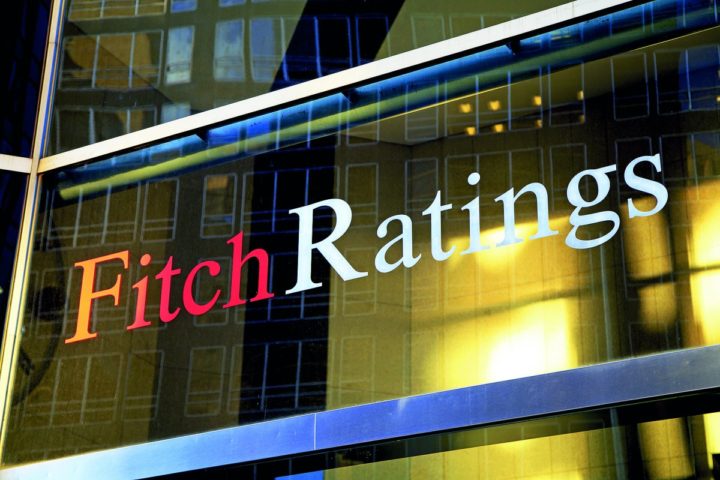The ratings of Cyprus’ two largest banks remain on Positive Outlook despite increased risks to the global economy due to the war in Ukraine, Fitch Ratings says.
Fitch expects Hellenic Bank (B/Positive) and Bank of Cyprus (B-/Positive) to progress with their planned disposals and securitisations of impaired loans, which underpins the Positive Outlooks.
Fitch recently lowered Cyprus’ 2022 GDP growth forecast to 3.1% from 3.7%.
“Slower growth and uncertainty about the path of inflation should not significantly disrupt the banks’ positive credit trajectories, as deals involving asset disposals are advancing.
“We expect both banks to complete the large, impaired loan disposals already in their pipelines this year,” Fitch said.
BoC is proceeding with plans to sell €0.6 bln of impaired loans and €121 mln of foreclosed real estate assets to investment management company PIMCO (accounting for about a quarter of problem assets at the end-2021).
Hellenic recently agreed to securitise a portfolio of impaired loans in a transaction with PIMCO, which will reduce its impaired loans by €0.7 bln (over half of the total at the end of end-2021).
“Slower economic growth should not lead to significant inflows of impaired loans, although the absence of Russian tourists, which represented about 20% of Cyprus’ tourists, could put pressure on some weaker borrowers in the tourism sector.
“However, we still expect Cyprus’s overall tourism activity in 2022 to benefit from the easing of pandemic-related travel restrictions since 2021.
BoC and HB have some direct exposure to Russian and Ukrainian counterparties.
BoC had loans with a net book value of €110 mln at the end-2021 and €13 mln of deposits in Russian subsidiaries of European banks in mid-March 2022.
HB had loans with a net book value of €35 mln at the end-2021, mostly collateralised with assets in Cyprus, and €20 mln of deposits in Russian subsidiaries of European banks.
“These exposures do not pose a threat to the banks’ capital.
“They account for only 8% of BoC’s common equity Tier 1 capital at end-2021 and 5% of Hellenic’s, but they could generate loan impairment charges that eat into 1H22 operating profit.
“The banks’ deposits from Russian clients are not large enough to represent a liquidity risk.”
At BoC, 6% of deposits were from Russian clients at end-2021, and the liquidity coverage ratio was 300%.
At HB, 8% of deposits were from Russian clients, and the liquidity coverage ratio was 473%.
The war in Ukraine started a chain of events that led to Cyprus’s RCB Bank (not rated by Fitch) being placed in an orderly wind-down.
The bank, the third-largest in Cyprus, had a change of ownership in February when Russia’s VTB Bank sold its 46.3% stake to existing Cypriot shareholders.
Hellenic has since announced the acquisition of up to €556 mln of RCB’s corporate loans (equivalent to 8% of HB’s gross loans at the end of end-2021).
The acquisition strengthens HB’s corporate lending franchise in Cyprus and could improve revenue generation and business model stability.
Following the acquisition announcement, RCB decided to wind down its banking operations and transform itself into an asset management company.
“HB’s acquisition of RCB concentrates the combined market position of Cyprus’s two leading banks.
“This should strengthen the sector’s pricing discipline in corporate lending and create business opportunities for BoC and HB with RCB’s former retail and corporate customers.
“The orderly resolution of RCB also protects the financial system’s stability and investor confidence in the Cypriot banking system.
“The sector may undergo further consolidation as Eurobank (B+/Stable), which already holds a 12.6% stake in HB and has an estimated 7%-8% market share in Cyprus, has stated its intention to increase its stake.”









